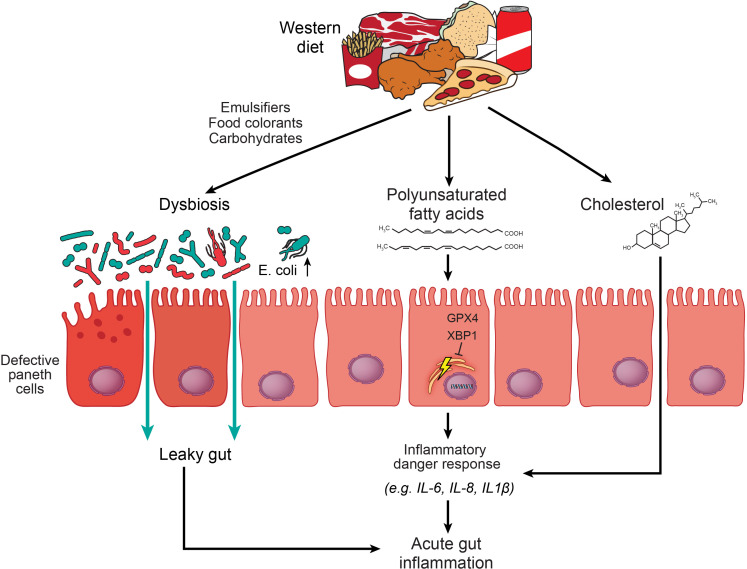Figure 1.
The Western diet impairs epithelial immune responses and promotes dysbiosis and inflammation. A Western diet is enriched with simple carbohydrates, fat (eg, saturated and polyunsaturated fatty acids and cholesterol) and food additives (eg, emulsifiers, food colourants, processed carbohydrates). These compounds may directly induce compositional and functional alterations of the gut microbiota, which partly impairs epithelial functions in the gut, that is, perturbs Paneth cells and the gut barrier.151 Consequently, a dysbiotic microbiota promotes susceptibility to gut inflammation by perturbation of host–microbe interactions.21 30 31 Polyunsaturated fatty acids in a Western diet trigger acute enteritis in mice without evidence for gut microbial dysbiosis, which is rather controlled by epithelial endoplasmic reticulum homeostasis (maintained by X-box-binding protein 1 and Glutathione peroxidase 4).36 38 Cholesterol exposure induces an acute inflammatory response involving neutrophils in the gut of mice, possibly by inflammasome sensing.152 GPX4, Glutathione peroxidase 4; IL, interleukin; XBP1, X-box-binding protein 1.

